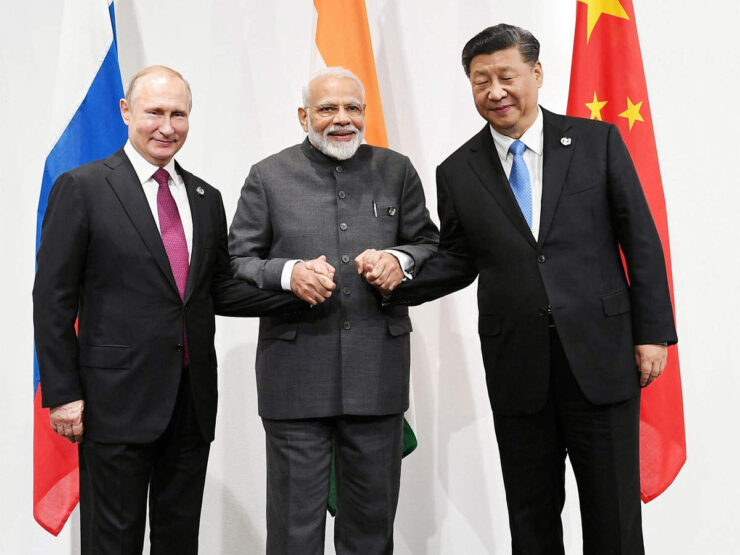
The Chanakyan dictum of “there are no permanent friends and foes in politics” fits perfectly in the context of the recent bonhomie between China and Russia and their common approach on multiple foreign policy issues. This issue is especially significant for India which has been one of the most trusted allies of Russia for many decades and has a frosty relationship with China. The recent change of Russian stance vis-a-vis China should raise concerns in the policy making circles of New Delhi. But at the same time it should be practical for India to consider making pragmatic moves as far as the nature of the “special relationship” with Russia is concerned.
Commonality of interests
It is not often that two military giants become the best of allies especially within a short period of time, but with Russia and China it seems to be happening. The two countries have several overlapping interests in the foreign policy realm- be it countering the USA or denying space for discussion on territorial interests. However things were not always the same, after a communist regime came to power in China the then Soviet Union signed a treaty of friendship with the former in 1950. Slowly the warmth of ties gave way to mutual distrust and suspicion over issues such as the Chinese accusation that the Russians were carrying out revisionism– trying to reinterpret the teachings of Lenin and Marx to suit their own needs. To compound the difficulty further the Chinese were demanding back large territories of land in the Vladivostok province which was a part of China’s Sinkiang province that Russian Empire had invaded and annexed in the 19th century.
A border confrontation led to a standoff in 1969 which resulted in the infamous Sino-Soviet split. Relations improved only after Mikhail Gorbachev became the premier of Russia in 1985.
Fast forward to the present day, Russia and China emphasize on opposing the Quad and the AUKUS pact which are firmly anti- China and anti- Russia groupings. Besides this, Russia’s support for the Chinese stand on Taiwan shows that China and Russia have a deep understanding on their common agendas.
Changing stance
After 2014, India has emphasized on promoting “pragmatism” with regard to its foreign policy, in that context it is time that India change its stance towards Russia, and given its recent pro-China tilt India must prioritize its security and core strategic interests. India should gradually reduce its reliance on Russian hardware. India should however strengthen its economic ties with Russia with a renewed emphasis on hydrocarbons, cyberspace, artificial intelligence and food commodities.
India should shed any pretence of its “special relationship” with China and must make it very clear to the Russians at the relevant diplomatic forums that if for the sake of Russia’s ties with China, they are willing to compromise their Indian interests, they will end up losing vital Indian investments in different avenues of the Russian economy.
India should also consider buying more defence equipment from Israel, France etc. to make Russia feel that India’s priorities are changing and that its Russian ties are on the wane. This will send a strong message to both China and Russia that India means business and will not remain a static player. This changing approach was evident when the Russians for the first time invited India to take part in a conference hosted by Moscow on Taliban, this came after India increased its defence spending from Israel.
In pursuit of assertive foreign policy with regard to China, it will definitely be sending a message to our ally Russia that any compromise with Indian interests will invite equal response in proportionate measures. However, India must exercise caution. In the process of pursuing an independent foreign policy, it should not end up antagonizing Russia too much. As Russia is a reliable ally and the backbone of the Indian military considering its large dependence on Russian equipment and platforms. Moreover, Russia is a top gas supplier and in times of need can provide us with cheap natural gas and other hydrocarbon reserves.
Conclusion
India should be careful while crafting its Russia policy and should follow the strategies outlined in The Prince written by Niccolo Machiavelli which is regarded as a classic treatise on statecraft and diplomacy. In that context India should however move forward boldly asserting its own liberty to decide on foreign policy terms especially with regard to Russia and China.








